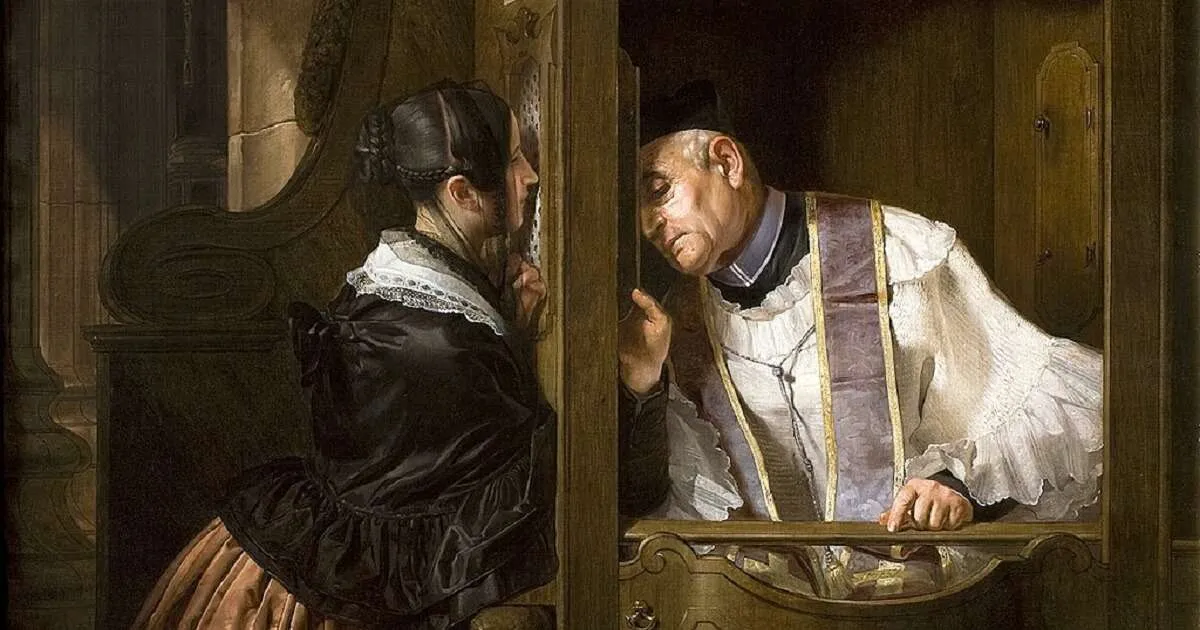The Sacrament of Confession, also known as the Sacrament of Reconciliation, is a profound expression of God’s mercy and love. However, several misconceptions surround this sacrament, often leading to misunderstandings about its purpose and the role of the priest. One prevalent misconception is viewing the priest as a mere “middle man” between the penitent and God. This article aims to clarify this misconception by exploring the true nature of the priest’s role in confession, emphasizing that the priest acts in persona Christi (in the person of Christ).
Misconception 1: The Priest as a Mere Middle Man
Many people mistakenly believe that confessing sins to a priest is unnecessary and that one can simply confess directly to God. While it is true that personal prayer and repentance are vital aspects of our spiritual life, the sacrament of confession is more than a private prayer; it is a sacramental encounter with Christ Himself.
The Catechism of the Catholic Church explains that through the sacrament of Holy Orders, priests are consecrated to act in the person of Christ (CCC 1548). When a priest hears confessions, he does so not on his own authority but as Christ’s representative. The priest’s role is not to replace God but to facilitate an encounter with God’s mercy through a visible, tangible sign, which is a fundamental aspect of Catholic sacramental theology.
Misconception 2: Confession Is Only About Listing Sins
Another common misconception is that confession is merely a ritual of listing sins. While enumerating our sins is an essential part of the sacrament, its purpose extends far beyond that. Confession involves genuine contrition, a desire for conversion, and the firm intention to amend one’s life. It is a sacrament of healing and transformation.
In the Gospel of John, Jesus breathes on His apostles and says, “Receive the Holy Spirit. If you forgive the sins of any, they are forgiven; if you retain the sins of any, they are retained” (John 20:22-23). This passage underscores the authority given to the apostles and their successors, the bishops and priests, to forgive sins in Jesus’ name.
Misconception 3: The Priest’s Role Is Passive
Some might view the priest’s role as passive, simply listening and absolving. However, the priest’s role is deeply active and pastoral. The Didache, one of the earliest Christian documents, emphasizes the importance of confessing sins within the community and seeking guidance from those entrusted with spiritual care (Didache 4). The priest provides spiritual direction, encourages the penitent, and helps them discern God’s will in their journey toward holiness.
The Priest Acting In Persona Christi
The concept of the priest acting in persona Christi is central to understanding the sacrament of confession. The Fundamentals of Catholic Dogma by Ludwig Ott explains that in this sacrament, Christ Himself is the primary actor; the priest is His instrument (Ott 452). The penitent confesses to Christ, who is present in the ministry of the priest.
Vatican II’s Decree on the Ministry and Life of Priests (Presbyterorum Ordinis) beautifully describes the priest’s role: “Through the sacrament of Holy Orders, priests are configured to Christ in such a way that they are able to act in the person of Christ the Head” (PO 2). This configuration enables priests to administer the sacraments, especially confession, in a manner that makes Christ’s saving grace accessible to the faithful.
Conclusion
Understanding the sacrament of confession and the role of the priest within it requires recognizing the priest’s identity as acting in the person of Christ. Far from being a mere intermediary, the priest facilitates a direct encounter with God’s mercy. By confessing our sins to a priest, we experience the tangible and sacramental presence of Christ’s forgiveness, which strengthens our resolve to live a more faithful and holy life.
Let us approach this sacrament with renewed understanding and gratitude, knowing that in the confessional, we meet Christ Himself, who forgives, heals, and restores us through the ministry of His priests.
